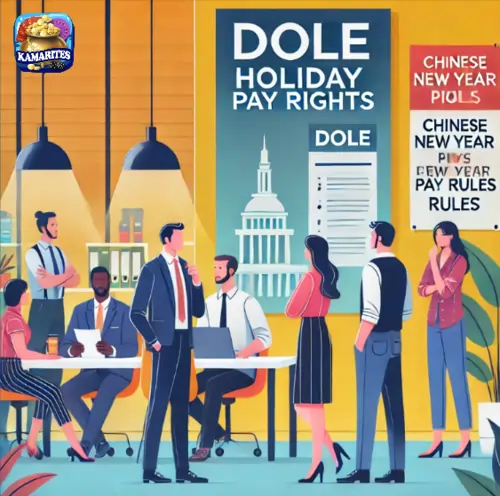
Pepsi Paloma‘s story is one of shimmering stardom shadowed by scandal and heartbreak. As a rising star in the 1980s Philippine entertainment industry, her life and tragic demise left a lasting impact that continues to raise questions about power, justice, and accountability.
Who Was Pepsi Paloma?
Pepsi Paloma was more than a name; she was an emblem of courage and allure in the 1980s Filipino “Bomba” film era. Born Delia Smith in 1966, she ventured into showbiz as a young dreamer, captivating audiences with her striking beauty and raw talent.
With daring roles that pushed boundaries, Pepsi became a symbol of defiance and vulnerability, embodying the era’s bold spirit while revealing the harsh realities of fame and exploitation.
Pepsi Paloma and the “Bomba” Film Era
The 1980s ushered in a new wave of cinema in the Philippines. Pepsi Paloma became a household name, starring in films that captivated audiences with their raw and unfiltered storytelling. Her presence on-screen was magnetic, solidifying her place as one of the most recognizable faces of the decade.
The 1982 Rape Scandal
At her peak, Pepsi Paloma became ensnared in a scandal that gripped the nation, challenging her strength and exposing the dark underbelly of fame in the male-dominated entertainment industry.

The Allegations
In 1982, Pepsi Paloma courageously stepped into the spotlight not for a role, but to expose a harrowing truth. She accused three of the country’s most powerful comedians—Vic Sotto, Joey de Leon, and Richie D’Horsie—of drugging and raping her.
Despite their immense influence and the risks to her career, Pepsi’s bravery in speaking out against such figures underscored her resilience and revealed the pervasive power dynamics in Philippine showbiz.
The Role of Renato Cayetano
Renowned lawyer Renato L. Cayetano entered the picture, representing Pepsi in her quest for justice. The legal battle became a media spectacle, with public opinion divided.
Media Sensationalism
The 1980s Philippine media became a relentless force in magnifying Pepsi Paloma’s ordeal, turning her pain into headline fodder.
and news outlets sensationalized every detail, prioritizing shock value over truth. Pepsi’s humanity was often overshadowed by dramatic narratives, exposing a media culture hungry for scandal but indifferent to justice.
The Aftermath of the Scandal
The controversy concluded with a public apology and an out-of-court settlement, but the scars it left on Pepsi Paloma ran far deeper. Professionally marginalized and emotionally battered, her once-promising career dimmed under the weight of betrayal and public scrutiny, leaving her to navigate the cruel aftermath of seeking justice.
Pepsi’s Resilience
Despite the scandal, Pepsi continued to work in the entertainment industry. Her courage inspired discussions about power dynamics and exploitation in Philippine showbiz.

The Tragic Death of Pepsi Paloma
In 1985, the nation was rocked by the devastating news of Pepsi Paloma’s death, officially ruled as suicide. Found lifeless in her apartment, her tragic end ignited widespread speculation and conspiracy theories, as many questioned the circumstances. Her untimely demise symbolized a life crushed by fame, betrayal, and unspoken truths.
Was It Suicide or Something Else?
While officially ruled as suicide, many speculate that her death was connected to the scandal and the threats she faced. The truth remains shrouded in mystery, leaving a lingering question: Was justice truly served?
The Legacy of Pepsi Paloma
Pepsi Paloma‘s life and death remain a poignant reminder of the darker side of fame. Her story continues to resonate, raising awareness about exploitation, power abuse, and the importance of justice.
Cultural Impact
Pepsi’s story has inspired documentaries, articles, and discussions, shedding light on systemic issues in the entertainment industry. Her courage paved the way for conversations that challenge the status quo.
What Can We Learn from Pepsi Paloma’s Story?
Pepsi Paloma’s tale is more than a celebrity story; it’s a mirror reflecting societal flaws and a call for change. Her courage in standing up against powerful figures in a male-dominated industry was groundbreaking and remains relevant today.
Advocacy for Justice
Her case reminds us of the importance of justice systems that protect the vulnerable and hold the powerful accountable. It also underscores the need for media responsibility in handling sensitive issues.
A Call to End Exploitation
Pepsi’s story highlights the exploitation that can occur in industries that prioritize profit over people. Her legacy calls for a rethinking of how we protect the rights and dignity of individuals, especially those in the limelight.
Conclusion
Pepsi Paloma’s journey through fame, scandal, and tragedy is a story worth revisiting—not just for its historical significance but for its lessons about humanity, justice, and accountability.
Her name may have been wrapped in controversy, but her legacy remains a beacon for change in a world that still grapples with the same issues she faced decades ago.
Disclaimer:
This narrative aims to shed light on the life and struggles of Pepsi Paloma with respect and empathy. It seeks to honor her legacy, while presenting facts responsibly, without sensationalism. (Kamarites)








